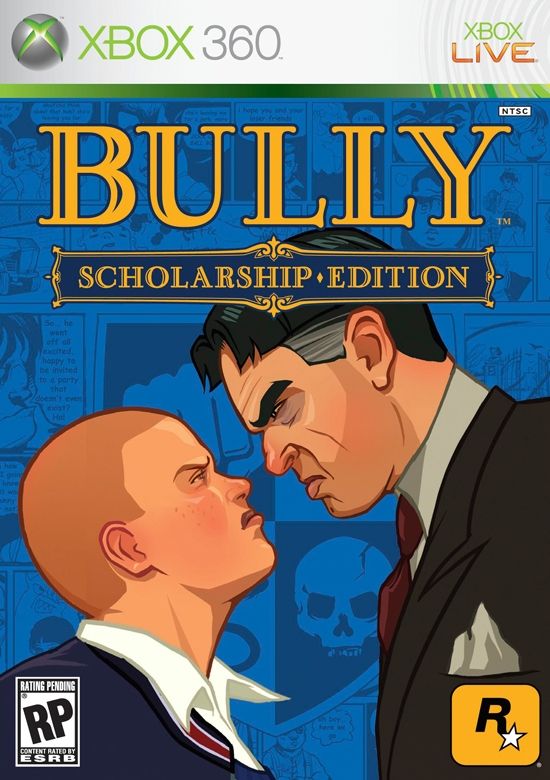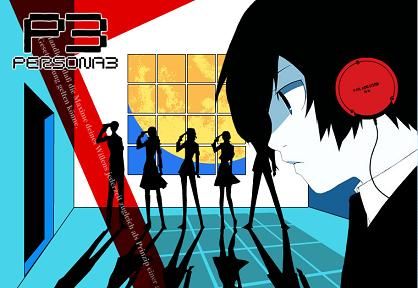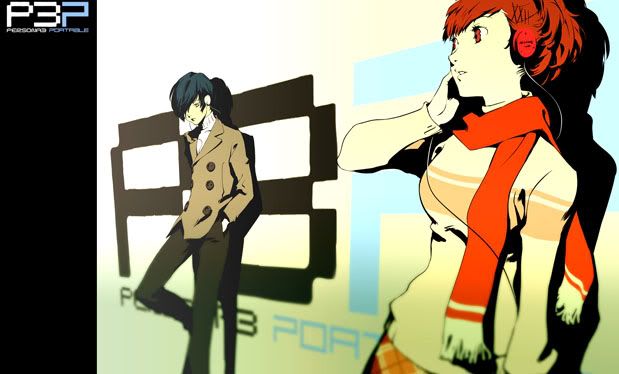Playing through Persona 3 for the second time gives me a chance to pick up on many things that I may have missed the first time through. I was so enamored with the fact that this was a great RPG for the PS2 in the midst of the high-def generation of the PS3 and Xbox 360 that concentrating more on the character building and relationship aspects of the game kind of took a back seat. That’s saying a lot coming from me, Mr. Character Development is Everything, right?
As I’m making my way through Persona 3 Portable for review, I realized something – there are some pretty sizable messages written into the dialog, both of the main story and the side stories, or Social Links. While Western games tend to lean on blood, gore and sex to express their “maturity”, I’m of the opinion that the subject matter and character interactions are what creates a truly mature experience.
Persona 3 sees you taking on the role of a high-school student. In fact, all the characters you control throughout the course of the game are students. While this is typical of Japanese anime, perhaps, it does lend itself to tackling some rather serious real life issues that teenagers face all around us every day. Most games, assuming they even touch on these things, make light of them or don’t handle them properly. I feel Persona 3 takes that a step further, by showing how some of these situations can be resolved amicably and possibly sending good messages to today’s teenage demographic about how to handle similar situations. Let’s take a look at a few things that are touched upon throughout the game. I'll warn you ahead of time that this is going to be a pretty serious discussion concerning some rather serious issues.
 Bullying, for a first example, is a huge problem in public schools today. I experienced it and just about everyone I’ve known and do know who goes to public schools has experienced it to some extent. There is a pretty sizable portion of the main story early on in Persona 3 that deals with this serious topic, how it starts and its consequences. During the story you’re slowly introduced to a character named Fuuka. She’s a student at your school and appears very frail and quiet – a typical target for bullying. Along with that, you get introduced to some girls who enjoy playing practical jokes on others, and giving people a hard time. You get the distinct impression that these girls think they’re better than everyone else.
Bullying, for a first example, is a huge problem in public schools today. I experienced it and just about everyone I’ve known and do know who goes to public schools has experienced it to some extent. There is a pretty sizable portion of the main story early on in Persona 3 that deals with this serious topic, how it starts and its consequences. During the story you’re slowly introduced to a character named Fuuka. She’s a student at your school and appears very frail and quiet – a typical target for bullying. Along with that, you get introduced to some girls who enjoy playing practical jokes on others, and giving people a hard time. You get the distinct impression that these girls think they’re better than everyone else.
While there is more to the situation that this, it ultimately involves the girls doing something to Fuuka that nearly gets her, as well as others, killed. This may be an extreme example, but it does show how serious a problem bullying, and the attitudes that surround it, is. What are the consequences? Besides what I already mentioned, a guilty conscience could weigh on someone for a long time if something serious were to come out of being the bully and causing lasting harm to someone else.
In the game things are resolved, and the girls involved even apologize and become friends with Fuuka, but this isn’t necessarily representative of real life outcomes. However, it is something to strive for in such a situation. And to think, this practice has its own game - that kind of puts things into perspective, doesn't it?
Teenagers today deal with domestic abuse, alcohol- and drug-addicted parents, a lack of what should be natural affection in the home and just a general all-around troubled family life. These are subjects of many of the Social Links you can establish with various characters throughout the game. While not all issues are resolved, the characters in the game do work through them, with your help and friendship. This entire process works much like real relationships between friends. If you found out your friend had an issue, whatever it may be, you would strive to do your best to help them, right? Perhaps, in some small way, Persona 3 can instill some of these values in those of us who play the game.
That covers quite a few truly mature topics. You know what? It doesn’t stop there! The game also touches on online gaming addiction, gender equality, depression, personal acceptance, self-esteem issues, peer pressure, stalking and I’m sure the list goes on. What makes Persona 3 unique enough to cover all these topics? Interestingly, it is the game mechanic of Social Links. These in and of themselves focus on building personal relationships with people in your lives, outside of the main narrative, which is also something that can benefit us in our interactions with other people.
 Those Social Links eventually work to make your character more powerful because it infuses created personas with strength, boosting your ability to fight with those personas right from the get go. The correlation to real life relationships? They make us who we are and, in some ways, ultimately define us. Those relationships give us strength, confidence and improve our quality of life. But, Persona 3 also lends itself to the idea that the quantity of these relationships isn’t necessarily what matters, but it’s the quality. The more you concentrate on a certain Social Link, the more powerful personas related to that link will become. You can’t just go around establishing every Social Link you can, and then leave it at level one or two. No, building on those over time is what gives you true power, and that is what true friendship is all about.
Those Social Links eventually work to make your character more powerful because it infuses created personas with strength, boosting your ability to fight with those personas right from the get go. The correlation to real life relationships? They make us who we are and, in some ways, ultimately define us. Those relationships give us strength, confidence and improve our quality of life. But, Persona 3 also lends itself to the idea that the quantity of these relationships isn’t necessarily what matters, but it’s the quality. The more you concentrate on a certain Social Link, the more powerful personas related to that link will become. You can’t just go around establishing every Social Link you can, and then leave it at level one or two. No, building on those over time is what gives you true power, and that is what true friendship is all about.
(As an aside, it should be noted that the follow-up, Persona 4, deals with even more issues, such as personal fears, socio-economic pressures, sexual preference, defining oneself, dealing with step-parents or estranged parents, etc.)
For all those who claim that gaming is the downfall of mankind and is ruining today’s youth, I must point out that it is subjects like these – maturely handled – that can be of real benefit to gamers today, especially those within the teenage demographic. That is arguably the toughest years of someone’s life and possibly the years that define many to come. If, even in some small way, the dialog and situations the characters within the games we play find themselves in can help us deal with the pressures of real life, I call that a win in my book. That is what a truly mature game should focus on, instead of gratuitous sex and violence, which gives no benefit to anyone when it is all said and done.


